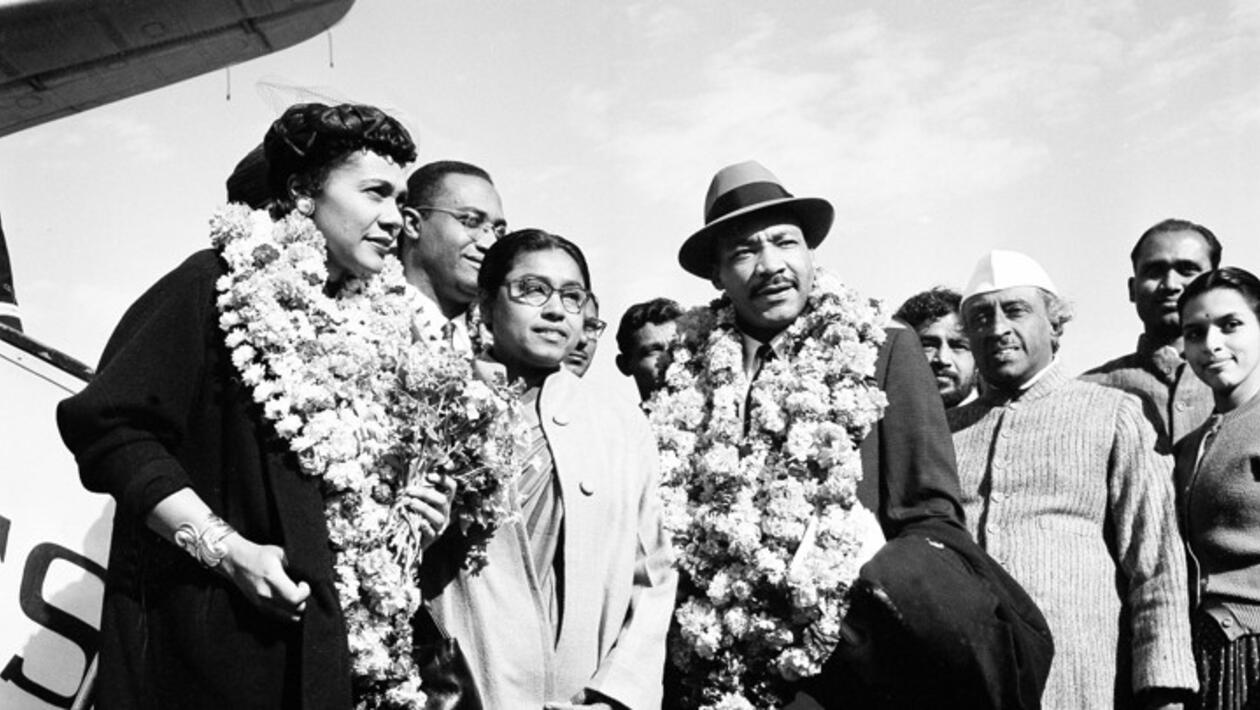Martin Luther King, Jr.’s Pilgrimage to India
Introduction
The following lesson encourages students to reflect on nonviolence as an instrument to change unjust laws by studying the Birmingham Campaign of 1963. Within this six-part lesson students will participate in a role play about the intricate planning strategies for the campaign, also known as “Project C” – “C” for Confrontation. Students will observe the courageous activism of young people, and examine the eloquent words of Dr. King’s Letter from the Birmingham Jail. The lesson provides students the opportunity to analyze primary source documents and discuss the concepts of social justice and social transformation in the past and in the present.
The essential question and sub questions are designed to guide the teacher and students through each segment of the lesson. These questions may be used as assessment at the end of the unit or as discussion prompts along the way. Teachers are encouraged to teach the entire unit or to choose the parts which fit their curricular needs. All activities are offered as an online experience or in print format.
Author: Mira Foster, Subject: U.S. History, World History, Grades: 6-8, 9-12
Essential Question
- 1
How did the trip to India impact Martin Luther King, Jr. and his understanding and practice of nonviolence?
Sub Questions
- 1
What is the importance of the India trip?
- 2
Why did King want to travel to India?
- 3
How was King received in India?
- 4
What were King’s observations and impressions during his trip?
- 5
What did nonviolence mean to King?
- 6
Is nonviolence still a useful tool in achieving social change? If so, how can we apply it today to facilitate social changes?
- 7
Why should we commemorate the 60th anniversary of Dr. King’s visit to India?


